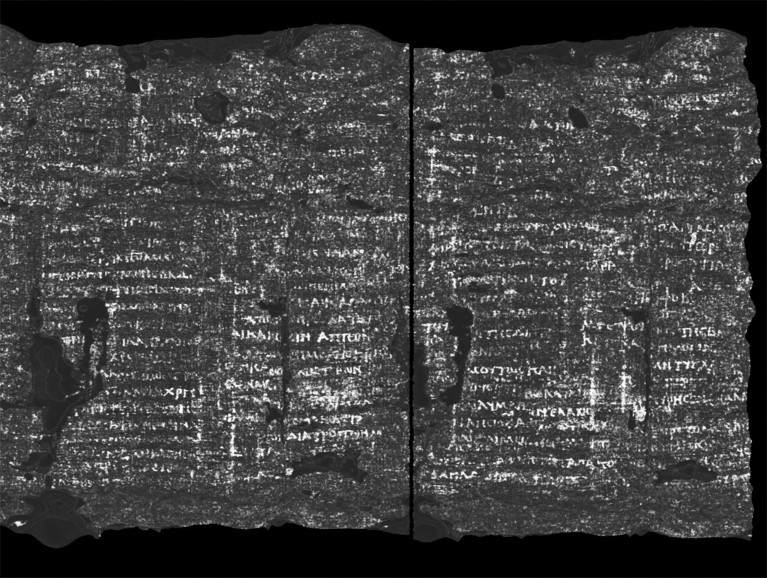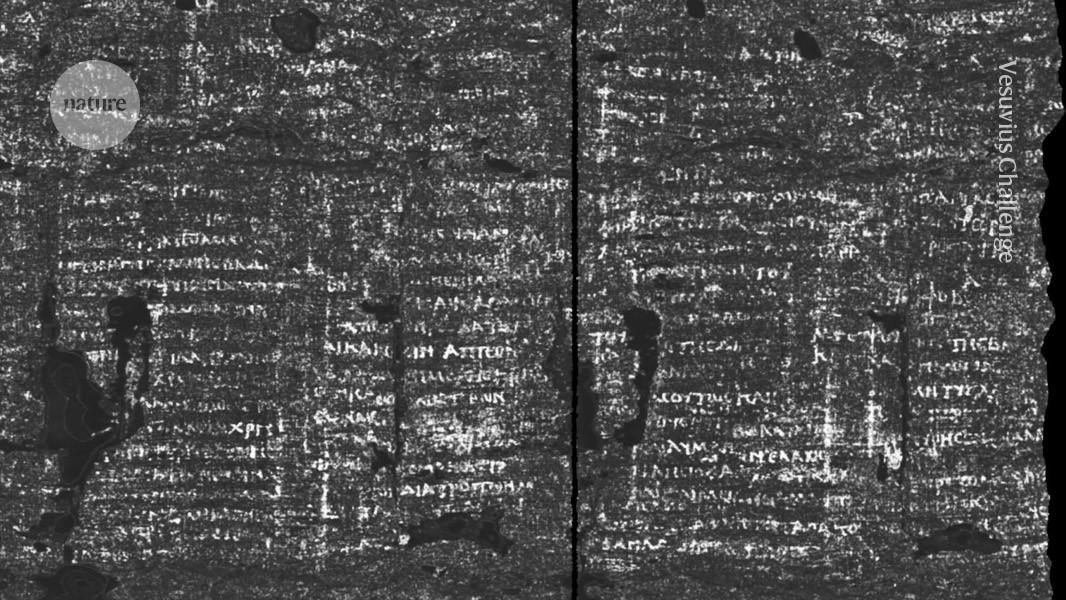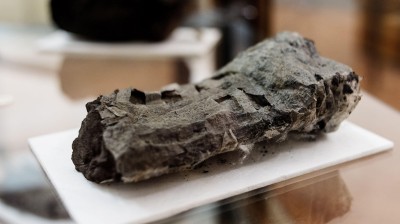
Some ink is visible on the high-resolution scan of the scroll, and AI models can be trained to spot letters and words.Credit: Vesuvius Challenge
Two researchers in the field of machine learning have won US$60,000 for being the first to reveal the title and author of a sealed papyrus scroll carbonized by the eruption of Mount Vesuvius in Italy in AD 79. The crucial lines identify the work as part of On Vices by the Greek philosopher Philodemus.
Inside the quest to digitally unroll ancient scrolls burnt by Vesuvius
Winners Marcel Roth, a student at Julius Maximilian University of Würzburg in Germany, and Micha Nowak at Gray Swan AI, an Internet-security company based in Pittsburgh, Pennsylvania, adapted an artificial intelligence (AI) model normally used for analysing medical images to decipher the text.
The work is a milestone in efforts to read a cache of ancient scrolls found in the ruins of the ancient Roman town of Herculaneum, says Kenneth Lapatin, curator of antiquities at the J. Paul Getty Museum in Los Angeles, California. The rolled-up papyrus scripts were discovered in 1752 in an ancient Roman villa. Hundreds of intact Herculaneum scrolls survive, but are too fragile to open.



